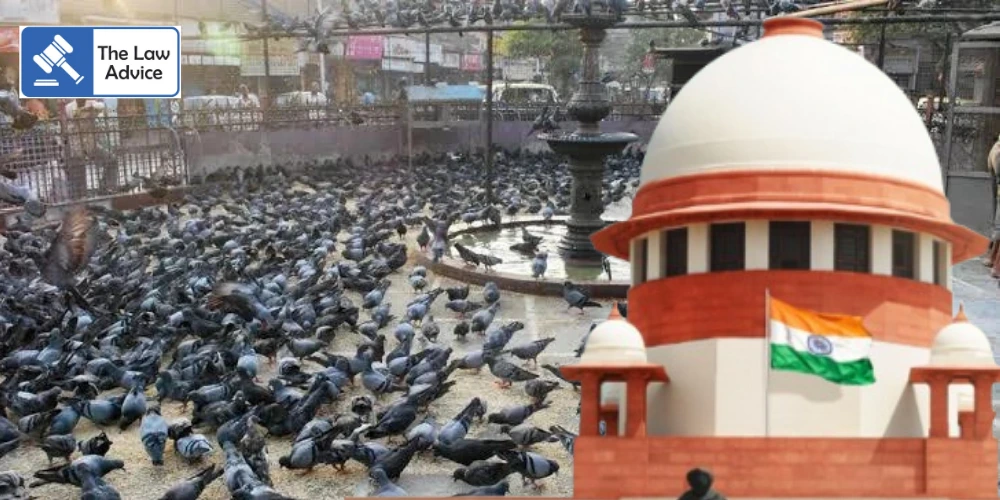On August 11, 2025, the Supreme Court declined to interfere with the Bombay High Court’s directives concerning the feeding of pigeons at designated spots, commonly known as ‘kabutarkhanas,’ across Mumbai. The High Court had earlier observed that such feeding activities pose significant health risks to the public and instructed the Brihanmumbai Municipal Corporation (BMC) to initiate criminal proceedings against individuals who persist in feeding pigeons in violation of the municipal orders.
A bench comprising Justices JK Maheshwari and Vijay Bishnoi stated that the Supreme Court would not entertain parallel proceedings at this stage and advised petitioners to approach the High Court for any modification of the existing order.
Background and High Court Proceedings
The Bombay High Court was hearing multiple petitions filed by animal lovers and pigeon feeding advocates opposing the BMC’s move to dismantle several longstanding kabutarkhanas beginning early July 2025. Initially, the High Court restrained the municipal body from demolishing these pigeon feeding spots but simultaneously expressed grave concerns about the public health hazards resulting from continuous pigeon feeding.
By July 30, the High Court noted with dismay that despite its earlier observations, pigeon feeding continued unabated and some individuals even obstructed municipal officials performing their duties. Consequently, the Court directed the designated officers of the BMC to register criminal cases under Sections 270, 271, and 272 of the Bombay Nagar Vanarakshak and Shasan Sanhita (BNSS) against those who defy the prohibition on feeding pigeons.
The High Court emphasized that feeding pigeons under such circumstances amounts to creating a public nuisance, potentially spreading infectious diseases and endangering human lives.
Health Concerns and Social Impact
Earlier on July 24, the Court highlighted the serious social and public health concerns arising from the breeding and congregation of pigeons in these kabutarkhanas. It underscored that the BMC’s decision, though opposed by some petitioners, was motivated by the greater public interest—protecting the health of all citizens, ranging from children to the elderly.
The Court clarified that the proceedings were not meant to be viewed as adversarial but as necessary measures for safeguarding community health.
Petitioners’ Contentions and Supreme Court’s Response
Dissatisfied with the High Court’s “hasty” hearing and orders, the petitioners approached the Supreme Court seeking relief. Their plea included proposals such as constructing bird towers as an alternative solution to allow harmonious coexistence between humans and pigeons.
The petitioners also argued that pigeon feeding is a religious practice deeply embedded in Hindu traditions and has been carried out peacefully for decades at 51 designated locations throughout Mumbai. They challenged the municipal authorities’ evidence, asserting that the health issues attributed to pigeons were in fact primarily caused by other environmental factors like vehicular pollution and open waste burning.
Despite these contentions, the Supreme Court refused to stay or alter the High Court’s directive, leaving the enforcement of the ban intact.
Case Details
• Case Title: Pallavi Sachin Patil and Another vs Municipal Corporation of Greater Mumbai and Others
• Case Number: SLP(C) No. 22103-22104/2025
